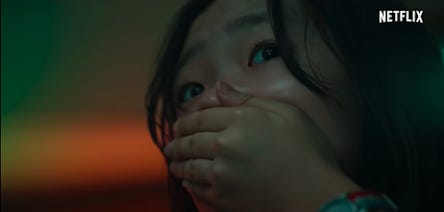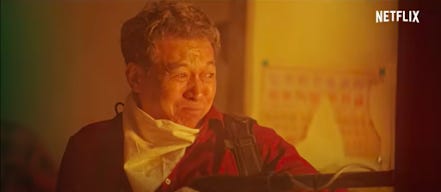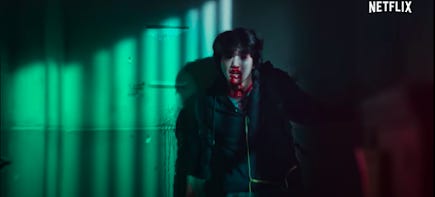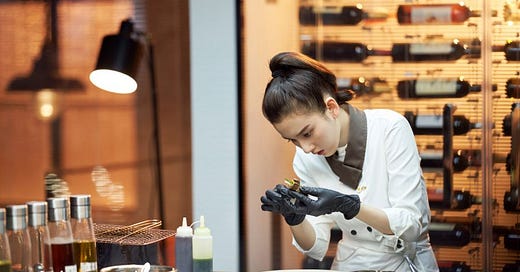
Sweet Home (2020) Another Christmas Carol *Major Spoilers*
Last afternoon-evening I completed the remaining episodes of Sweet Home after returning home from a Christmas gathering with family. I'd been saving them for when I'd be done with the festivities. I then went to My Drama List to record my final score and to see what others have been saying about it. The current rating is relatively high but there are some particularly those who are fans of the webtoon that seem disgruntled with the execution of the last 3 episodes especially when I was personally most gripped, most moved. I found the entire experience deeply immersive to the point that I was shedding tears which I don't do very often. Moreover, for me at least, the show's primary preoccupations all seem to come together in that relentless, brutal third act.
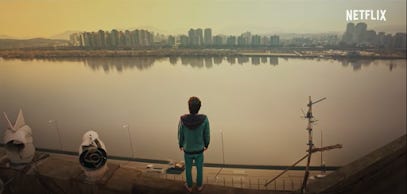
As someone who hasn't read the webtoon and has no intention of doing so, the reason why the drama works for me despite all the gore, is because it's fundamentally about the nature of group dynamics in a dystopian universe. To me the monsters are the window dressing, not the meat of the drama despite the damage they inflict. Here even the definition of "monster" is conspicuously called into the question so that's our cue to how to see the show. It follows that we're meant to see them as a catalyst for a very human story that is played out in such an extreme scenario.
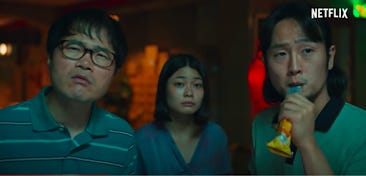
I'm someone who not only celebrates Christmas but takes it very seriously. It isn't just a tradition or religion but it defines my view of the world and hopefully, how I live my life. Whether I watch dramas or read books or gather with people, the Christmas worldview determines how I see the narrative, the characters and the storytelling. I'm not sentimental about Christmas but I hold to the core sentiments of Christmas going back to its biblical roots. Goodwill and peace to all mankind means something to me but it doesn't begin at the seat of governmental power but in the human heart.
Why talk about all this in an analysis of a K drama that markets itself as a horror drama? Because it's obvious to me that this horror drama deals with the big questions of life in visceral fashion. The group dynamics in a post-apocalyptic world is a fitting context to explore metaphysical questions. And what's also suggestive is that there's a Christian man in the middle of it, trying to make sense of God's will in it and his own place in such an environment. In the Christian tradition, the belief is that human beings are made in the image of God. That's where the value of humanity lies... in the very act of the creation and giving of life by a transcendent being.
While it might feel like I'm sermonizing, there's no running away from it as the newly formed community of survivors debate over what they should do with Cha Hyun-so as he continues to battle complete monsterization and stay in that middle mutated state. No one understands monsterization entirely. Not even the military experiments have yielded definitive results. There is some indication that greed might be a key variable. But some never turn completely although they gain... what might be called superhuman abilities. I have my own views on monsterization but the ambiguity is intriguing.
A later addition into the casting mix calls it "evolution" echoing Eric Lehnsherr aka Magneto from the X-men universe. According to him, they are the new breed of humans rising from the ashes from the monster apocalypse. They have superseded the "old model" and have become the new human perhaps even master race. This view holds to idea that power determines superiority. It's natural selection... survival of the fittest writ large.
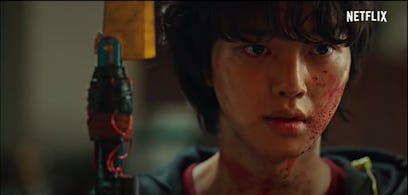
That is the debate that the show has with itself all throughout as the existing survivors in Green Home play out their fears, stress responses and own deep-seated beliefs. In a chaotic situation why do we appreciate it when a leader rises up and takes charge bringing order when everyone is in a state of panic? Is it purely a survival instinct? If so, where does that come from. Moreover, the characters constantly teeters on the edge of barbarity and yet time and time again, something pulls them back into some semblance of civility. Is it only self-interest? Certainly it's not the case for all. The mob mentality especially in those early days has a habit of rearing its ugly head threatening to split people apart into factions. Yet by the end of the drama, the small band of bedraggled survivors learn to be some kind of community... as they witness the very best and the very worst of human behaviour: greed, selfishness, cowardice on the one side and self-sacrifice, generosity, courage on the other. Despite the flawed nature of humans, they can be redeemed when touched by something much bigger than themselves.
I was given a Mere Christianity journal for Christmas which contained quotes from the original book from C.S. Lewis. Because that's how my brain works, I immediately connected some of them with the themes of Sweet Home.
"Nowadays, when we talk of the "laws of nature" we usually mean things like gravitation, or hereditary, or the laws of chemistry. But when older thinkers called the Law of Right and Wrong "the law of Nature", they really meant the Law of Human Nature. The idea was just that, just as all bodies are governed by the law of gravitation, and organisms by biological laws, so the creature called man also had his law -- with this great difference, that a body could not choose whether it obeyed the law of gravitation or not, but a man could choose either to obey the Law of Human Nature or to disobey it."
"Think of a country where people were admired for running away in battle, or where a man felt proud of double-crossing all the people who had been kindest to him. You might just as well try to imagine a country where two and two made five. Men have differed as regards what people you ought to be unselfish to -- whether it was only your own family, or your fellow countrymen, or everyone. But they have always agreed that you ought not to put yourself first. Selfishness has never been admired."
[...]
"But the most remarkable thing is this. Whenever you find a man who says he does not believe in a real Right or Wrong, you will find the same man going back on this a moment later. He may break his promise to you, but if you try breaking one to him he will be complaining "It's not fair" before you can say Jack Robinson. "
Whatever else Sweet Home is to other people and it is visually spectacular undoubtedly, it is a deeply philosophical presentation. Despite all the madness, the violence and the tragedies that ensue, the moral universe is obvious. It's clear what behaviours are "good" and "bad". What's more... it assumes we know and agree about what they are. Kindness, empathy and protecting the vulnerable are valuable qualities despite the fact that the environment doesn't reward such behaviour all the time. Judging from the outcomes... it isn't the strongest or the best necessarily that end up at the back of the truck but those for whom the strongest and the best gave their lives for. That outcome eschews natural selection... whatever that means. If anything the magic happens when people act against their own survival impulses and self-interest for the sake of the community. The Christian Bible has a word for this... it's grace.
Peace on earth and goodwill to all men... most would agree with this sentiment. But why... that is the question that needs to be answered by every heart. Nothing should be assumed.
